Showing 21-40 of 232 results
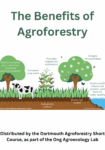
Agroforestry Transition Hub
This video introduces the Agroforestry Transition Hub at Dartmouth College, which focuses on education and on-farm research to promote transitions to agroforestry on farms in the Northeast. The project also created two zines, Common Agroforestry Practices and The Benefits of Agroforestry. Common Agroforestry Practices Zine This zine describes common agroforestry practices and shows their roots […]
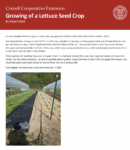
Growing Seed Crops
Northeastern farmers and seed keepers are interested in increasing seed production for on-farm, community, and commercial use. This series of Cornell University fact sheets shares useful production information for a range of vegetable crops. Growing of Lettuce Seed Crop Fact Sheet Basics of Growing Carrots, Beets and Onions for Seed in the Northeast Timing of […]
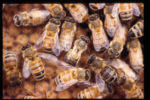
An Introduction to Honey Bee Breeding Program Design
Honey bee breeding is a long-term, labor-intensive process that is becoming more popular and accessible. This 10-page fact sheet from Penn State Extension, An Introduction to Honey Bee Breeding Program Design, introduces beekeepers to the basics of starting a honey bee breeding program.
Adding Value to Locally Grown Products
Farmers often consider adding value to the whole foods produced on their operation as a way to retain a higher percentage of the food dollar on the farm. The fact sheet Adding Value to Locally Grown Products describes how Pennsylvania producers can start and operate a value added enterprise in their farm kitchen or in […]
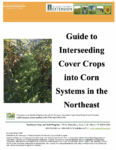
Guide to interseeding cover crops into corn systems in the Northeast
Although substantial gains in cover crop acreage have been seen across the northeast, proper establishment of cover crops continues to be challenging for dairy operations which rely heavily on corn silage. Farmers are interested in exploring the concept of solar corridors that integrates row crops with solid-seeded cover crops in broad strips. The broad strips […]
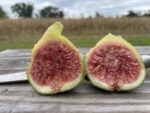
Exploring the Potential for Fig Production in the Northeast
The vast majority of domestic fig production in the United States is concentrated in California, because the cost of overwintering fig trees in colder climates is a barrier to the expansion of commercial production. But on one farm in Yardley, Penn., Craig Boyer is exploring a new method of overwintering figs with the aim of […]
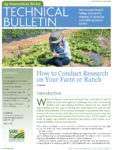
How to Conduct Research on Your Farm or Ranch
By Kate Cesario Conducting on-farm research allows producers to gain valuable knowledge on how to improve their farm or ranch. By learning the science behind the inner workings of a crop or livestock system, farmers can make changes to increase profitability or sustainability. Research projects are formed around farmers’ goals but are commonly aided by […]

How the SARE Program Serves Farmers
From Northeast SARE Regional Director, Dr. Teresa Leslie Greetings and happy Spring! A little over a year ago I joined the SARE family via Northeast SARE and it has been a pleasure to serve, fund, and support farmers/ranchers in the District of Columbia, Connecticut, Massachusetts, West Virginia, New Hampshire, Vermont, Rhode Island, Maine, New York, […]
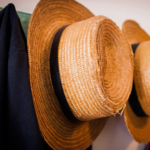
Northeast SARE Provides Print Resources to Amish Farming Communities
Northeast SARE is continuing to explore new markets and audiences through our centering and belonging work. Here at Northeast SARE, we focus on sustainable agriculture and assist in supporting the region's nutritional and textile needs while partnering with our environment and all living organisms comprising our ecosystem. Through our sustainability efforts, we strive to protect […]
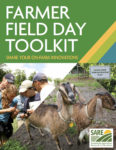
FARMER FIELD DAY TOOLKIT: Share Your On-Farm Innovations
An excellent way for farmers to teach other farmers and the public about the solutions they are developing on their farm is through hosting a field day; an informational on-site event farmers plan to show off their work on conservation, efficiency, and more.

Help Northeast SARE Grow by Joining our Community
From the Desk of Northeast SARE Director Dr. Teresa Leslie This is part of a quarterly series on changes at Northeast SARE click here to subscribe to future editions. I would like to take this opportunity to wish all of you a Happy New Year! It is amazing for me to say that I have completed […]
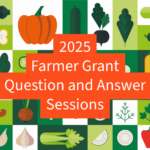
2025 Farmer Grant Question and Answer Sessions
The Call for 2025 Northeast Sustainable Agriculture Research and Education (SARE) Farmer Grants is now available. Approximately $850,000 has been allocated to fund projects. Awards of up to $30,000 are available and proposals are due no later than 5:00 p.m. EST on November 12, 2024.
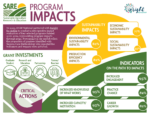
Northeast SARE Case Studies
In 2023, the SARE National Reporting, Coordination, and Communications Office (NRCCO) contracted with Insight for Action to conduct a post-project evaluation of four of SARE's regional grant programs. The purpose of the evaluation was to characterize key impacts made by SARE’s grantmaking from 2016 through 2023. The evaluation employed the Success Case Method (SCM) to identify program impacts grounded […]

2025 Farmer Grant Call For Proposals Now Open
Farmers in the Northeast can apply for up to $30,000 in funding for sustainable agriculture projects starting in 2025. These projects can range from experiments to on-farm events and demonstrations or other educational activities. The Call for 2025 Northeast Sustainable Agriculture Research and Education (SARE) Farmer Grants is now available. Approximately $850,000 has been allocated […]
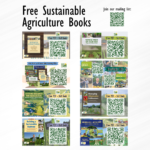
Free Printable Sustainable Agriculture Library
These scannable cards are a great resource for anyone interested in sustainable agriculture. SARE resources combine insights from across multiple projects and regions to create materials that have significant staying power. Print them individually or as a single page you can post in the office, workshop, or tractor for easy reference! Connect with more resources […]

2025 Large Grant Preproposal Q&A Answers and Recordings
The sessions will include a brief overview of Northeast SARE's grant programs before moving into breakout rooms where you can connect directly with grant program administrators. Participants will be able to switch between the different breakout rooms to get a sense of how each grant program fits with their potential project.

From the Director's Desk - Centering and Belonging
Northeast SARE provides competitive funding for, and education about, sustainable agriculture. Thus, we center around sustainable agriculture and assist in supporting the regions nutritional and textile needs while at the same time being in partnership with our environment and all living organisms comprising our ecosystem.

Which Large Grant program is right for you? Q&A Sessions taking place
The Q&As will include a brief overview of Northeast SARE's grant programs before moving into breakout rooms where you can connect directly with grant program administrators. Participants will be able to switch between the different breakout rooms to get a sense of how each grant program fits with their potential project.

Calls for 2025 Large Grant Preproposals Open
Three Northeast Sustainable Agriculture Research and Education (SARE) programs are calling for preproposals. $5.9M in funding is available across the Research and Education, Research for Novel Approaches, and Professional Development grant programs. Preproposals are due August 6, 2024 by 5 p.m. EST. Q&A Sessions will take place in June and July to help applicants determine […]
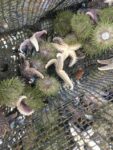
Learn about the 2024 Northeast SARE Farmer Grant Projects
Thirty-two projects taking place in the Northeast region will receive a total $779,758 in funding through the 2024 Northeast SARE Farmer Grant program. SARE's Project Database is publicly accessible, which means you can follow along with these sustainable agriculture projects taking place in your community.